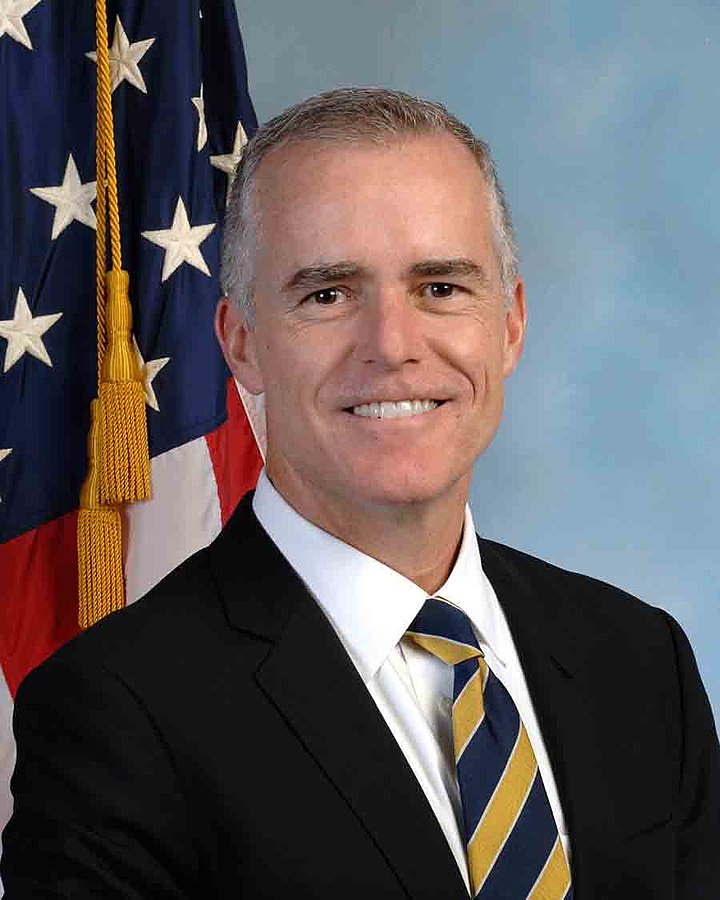
WASHINGTON — Andrew McCabe, the fired FBI deputy director, misled investigators and his own boss about his role in a news media disclosure about Hillary Clinton just days before the 2016 presidential election and authorized the release of information to “advance his personal interests,” according to a Justice Department watchdog report.
President Donald Trump, already furious over a forthcoming book from fired FBI Director James Comey, lashed out after the report’s release by saying McCabe had “LIED! LIED! LIED!”
The inspector general report concludes that McCabe allowed FBI officials to disclose nonpublic information to a Wall Street Journal reporter for a story about an investigation into the Clinton Foundation, violating agency rules, and then misled FBI officials when questioned about it. It also reveals starkly contradictory accounts from McCabe and Comey about how the conversations with the reporter had come to take place.
McCabe, who was fired two days before his scheduled retirement last month, denied the report’s allegations in a detailed rebuttal statement. He said that when he believed his answers to the inspector general were misunderstood, he went back and tried to correct them.
McCabe’s statement noted that as deputy director he had full authority to authorize sharing information with the media and said he permitted subordinates to do so in this case to correct a false narrative that he had tried to stymie an FBI probe into the Clinton Foundation.
The conversation “was done to protect the institutional reputation of the FBI as a non-political and professional investigative agency, and therefore was squarely within the public interest exception to the FBI’s prohibition on sharing sensitive material,” the statement said.
McCabe has also said his dismissal was part of the Trump administration’s “ongoing war” on the FBI and special counsel Robert Mueller’s Russia investigation, adding that he was singled out because of the “role I played, the actions I took, and the events I witnessed in the aftermath” of Comey’s firing.
The inspector general report does not square with the Republican narrative of the FBI as a politically biased institution, since the Oct. 30, 2016, story contained derogatory information about Clinton and underscored FBI interest in investigating her foundation. But its conclusion may also be hard for Democrats to embrace, given its harshly critical suggestion that McCabe had put his personal reputation above the interests of the FBI.
Regardless, the report immediately provided fodder for Trump’s public attacks on McCabe, a longtime target of the president’s ire, especially because of revelations that his wife, during a failed state Senate run, had accepted campaign contributions in 2015 from the political action committee of then-Virginia Gov. Terry McAuliffe, a close Clinton ally.
The president has made a concerted, Twitter-driven effort to impugn McCabe as a partisan hack, accusing him of covering up unspecified “lies and corruption” at the FBI and calling his firing a “great day for Democracy.” On Friday, Trump said the inspector general’s report was a “total disaster” for McCabe and asserted “McCabe is controlled by Comey.”
“No collusion, all made up by this den of thieves and lowlifes!” Trump tweeted.
A lawyer for McCabe, Michael Bromwich, said he was considering filing a defamation lawsuit against Trump and his “colleagues.” He responded to Trump’s tweet by sarcastically thanking him for “providing even more material” for such a lawsuit.
The inspector general report was sent to congressional committees and obtained by The Associated Press.
Rep. Trey Gowdy, the Republican chairman of the House Oversight and Government Reform Committee, said the report showed the firing was justified. But Sen. Dianne Feinstein, the top Democrat on the Senate Judiciary Committee, called the firing “overtly political.”
The findings, which had trickled out in news reports over the last month, led FBI disciplinary officials to recommend that the Justice Department fire McCabe. Attorney General Jeff Sessions dismissed him for what he described as a lack of candour.
McCabe, appointed deputy director in 2016, had been a close Comey ally and passionately defended him in a congressional hearing soon after his firing. He could be an important witness for Mueller, who is investigating Trump for possible obstruction of justice, including his motivation for firing Comey last May.
Yet the report makes clear that the McCabe and Comey were at odds over how the conversations with the reporter unfolded and exactly how it had been approved.
McCabe told the inspector general that he had told Comey the day after the story was published that he had authorized officials to share details of a conversation he had with a top Justice Department official about the Clinton Foundation investigation.
The conversation involved an encounter in which McCabe confronted the official over the suggestion that the FBI should not be taking overt investigative actions against the Clinton Foundation during the course of the election by asking, “Are you telling me that I need to shut down a validly predicated investigation?” The official replied, “Of course not,” according to the Wall Street Journal story.
According to the report, McCabe said Comey told him that he thought it was a “good” idea to rebut a narrative that the FBI was succumbing to political pressure and not aggressively pursuing the Clinton Foundation.
But Comey told investigators that McCabe did not tell him he had approved sharing details of the call and, in fact, had left him with the opposite impression.
“I don’t remember exactly how, but I remember some form or fashion and it could have been like ‘Can you believe this crap? How does this stuff get out’ kind of thing?” Comey is quoted as saying in the report. “But I took from whatever communication we had that he wasn’t involved in it.”